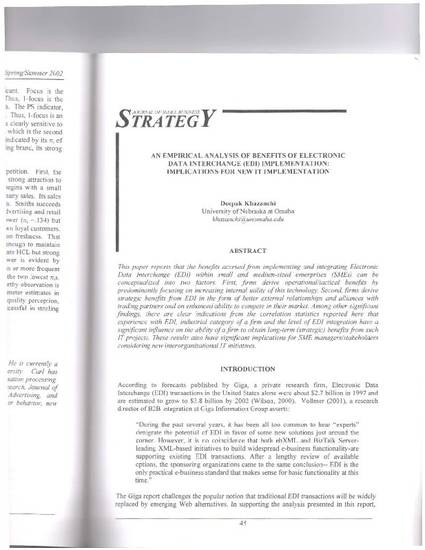
This paper reports that the benefits accrued from implementing and integrating Electronic Data Interchange (EDI) within small and medium-sized enterprises (SMEs) can be conceptualized into two factors. First, firms derive operational/tactical benefits by predominantly focusing on increasing internal utility of this technology. Second, firms derive strategic benefits from EDI in the form of better external relationships and alliances with trading partners and an enhanced ability to compete in their market. Among other significant findings, there are clear indications from the correlation statistics reported here that experience with EDI, industrial category of a firm and the level of ED! integral ton have a significant influence on the ability of a firm to obtain long-term (strategic) benefits from such IT projects. These results also have significant implications for SME managers/stakeholders considering new interorganizational IT initiatives.
Available at: http://works.bepress.com/khazanchi/7/
